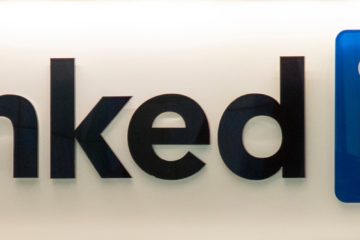A great CV or Resume is a gateway to success.
Every fresher or experienced professional stumbles on the question- how to write a professional resume? A resume that shines brightly in the crowd at some point in time in their life. Your resume should have every section described briefly. There is a section in the resume called Educational Background or Education or Academic Qualification. This section matters for fresh graduates or postgraduates more than experienced professionals. In this article, we have mentioned the do’s and don’ts of resume section.
3 Do’s for your Education section:
List your education in reverse order.
If you have a master’s and a bachelor’s degree, make sure to first list the master’s degree. If you have a bachelor’s degree, do not bother writing your high school degree. Make sure that your highest level of education is always listed first. If you have certificates in certain industries that are relevant to the job, a list after your bachelor’s degree or before your high school degree would work.
Write in your GPA and accomplishments.
Only do this if you’re a recent college graduate. After a certain time, your GPA during college is not as important as your work achievements – unless you decide to change fields entirely. Also, be sure to include any academic honors, such as scholarships, or other awards.
Write in your credits
If you did not finish your degree, then write in a number of credits that you obtained. For example, if you started college but did not complete it, list what major you were pursuing and relevant coursework was taken. If you have taken many classes that are related to the position you are attempting to get, it may not matter as much that you didn’t get the degree. So be sure to include this.
ALSO READ: DO'S AND DON'TS FOR THE AWARD SECTION IN YOUR RESUME 3 REASONS WHY YOU SHOULD NEVER LIE IN YOUR RESUME
3 Don’ts for your Education section:
Don’t embellish or falsify things.
This is obvious, but must be restated. Exaggerating an award you received or lying about your GPA can terminate your candidacy for a position. Even worse, it could get you fired after you started a job. Be very honest in your education section.
Don’t make it too general.
Your education section should highlight what you accomplished, but it should do it in a way that directly targets your potential employers. If you are applying for a job in computer science, make sure that you show you have taken relevant coursework or obtained related certificates. Even listing a minor during college can help if it deals with the desired position. Tailor this section to the job.
Don’t ignore dates.
List the month and year of graduation as well as the institution. If you haven’t graduated, list the anticipated graduation date. Ignoring these dates makes it hard for employers to connect your work history and may make some suspicious that you have gaps in your work history. For those who have only been in the workforce for a few years, showing when you graduated and your immediate work experience following graduation can help highlight your determination and focus on progressing your career. If you graduated over 15 years ago, dates aren’t as necessary.
Bottom line
After graduation, your education is your biggest marketing tool for landing a job, so make sure the education section of your resume is the most important part. After you have five to ten years of work experience and your career has shown steady progression, it’s important that you list your work section in front of your education section. However, it’s still important that you highlight your degree and education; most employers will still want to see what you did in school, even if it was a long time ago.
You can use resume builder sites like cvDragon It provides a different resume format for professionals and freshers. You will find many resume samples here. The resume downloads can also be done. Hurry up and start now.



0 Comments